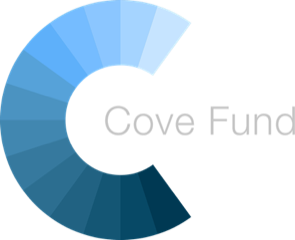How Founders Can Nail the Diligence Process: Advice from Cove Fund LPs
For many founders, the due diligence process can feel like an extended exam — intense, revealing, and often a little uncomfortable. But it’s also one of the most pivotal stages in a startup’s fundraising journey. At Cove Fund, our Limited Partners (LPs) bring decades of experience as operators, executives, and investors. We asked them a simple question: What advice would you give to founders about having a good diligence process? Their answers provide a practical, no-nonsense roadmap for turning diligence into a strategic advantage.
1. Preparation Is Everything
Multiple LPs emphasized the importance of preparation. A strong, organized data room is the foundation of a successful diligence process. That means having your financials, cap table, customer references, legal documents, product roadmap, and team bios ready in advance — not scrambling to assemble them on demand.
Investors want to see that you’ve thought through every aspect of your business. They’re not just looking for documentation — they’re looking for evidence that you can execute with discipline. That starts with being able to support your pitch with data, not just storytelling.
2. Be Transparent — The Good, the Bad, and the Ugly
“Get it all on the table from the start,” one LP said. That includes the messy parts: past pivots, product challenges, slow quarters, internal turnover. Transparency earns trust. Diligence is not just about validating what you said in your pitch — it’s about surfacing what you didn’t say and testing how you respond under scrutiny.
Trying to “spin” bad news or hide gaps can backfire. As one LP put it, “Don’t make up answers. If you don’t know, say it — then go get the answer.” Honesty isn’t just a virtue; it’s a signal that you’ll be a reliable partner post-investment.
3. Substance Over Storytelling
In today’s pitch-happy environment, founders often over-index on narrative and under-invest in the substance. A great story might open doors, but it’s the numbers, plans, and team behind it that close the deal.
As one LP succinctly put it, “Founders mistakenly believe that a compelling pitch alone is enough to secure investment.” It’s not. Be prepared to go beyond the high-level overview in your deck. What assumptions drive your financial model? What real customer pain are you solving, and how do you know? How defensible is your product? What are your unit economics at scale?
4. Be Coachable and Growth-Ready
Several LPs highlighted founder mindset as a key diligence factor. One shared this advice: “Be ready to transition to leadership that can manage the growth stage effectively. This may or may not include the founder.”
That might be tough to hear — but it’s true. Investors aren’t just betting on your current ability to lead. They’re assessing your capacity to scale yourself alongside the business. Are you bringing in experienced leaders where needed? Are you open to feedback and learning? Founders who are coachable — who listen, adapt, and grow — stand out during diligence.
5. Equip Your Advocates
Customer references are a powerful part of the diligence process. Make sure your customers are not only satisfied but also prepared to articulate how your product makes a meaningful difference. Offer to brief them on what investors might ask so they can speak clearly and confidently.
The same goes for your advisors and early backers. Diligence isn’t just about documents — it’s about voices. When customers, employees, and partners speak with clarity and conviction, it reinforces your credibility.
6. Keep It Simple and Organized
“Have as much prepared in a simple format,” one LP advised. This isn’t about putting together a 100-slide deck or a legal brief. The best data rooms are clean, clear, and well-labeled. The easier you make it for investors to find and understand information, the faster and smoother the process will go.
Confusion or disorganization during diligence can be a red flag. It signals that you may operate the same way post-investment.
7. Partner with Local Talent for Research Support
One LP pointed out an underutilized opportunity: working with graduate students — for instance, from UC Irvine — to support diligence prep. Engaging qualified students in researching competitive landscapes, refining go-to-market strategies, or validating assumptions can both improve your materials and expand your network.
It’s a smart move, especially for founders operating near major research universities.
8. Diligence Is a Two-Way Street
Finally, remember that diligence is your opportunity to evaluate the investor, too. How they treat you during this process can tell you a lot about the kind of partner they’ll be after the term sheet is signed. Are they curious or combative? Are they consistent in their feedback? Do they bring valuable questions and insights, or are they just checking boxes?
At Cove Fund, we believe that great outcomes come from great partnerships. That starts with a diligence process built on clarity, mutual respect, and substance.
Closing Thoughts
Diligence doesn’t have to be daunting. It can be a chance to demonstrate maturity, communicate your vision with confidence, and lay the groundwork for a productive relationship with your investors.
As our LPs made clear, it’s not about perfection. It’s about preparation, honesty, and strategic focus. Founders who take this approach not only improve their odds of getting funded — they also set the tone for how they’ll lead, adapt, and grow once the capital is in the bank.
About Us
Cove Fund is a seed-stage venture capital fund based at UC Irvine’s Beall Applied Innovation, a hub for Southern California entrepreneurs and investors. We invest in early-stage technology and life science companies with differentiated products that address large markets and can achieve major milestones with seed funding.
Since our inception, we have invested over $20 million and are actively deploying capital from our $24 million third fund. If you are a Southern California startup seeking funding — or an investor interested in becoming a limited partner — visit us at www.covefund.com.
